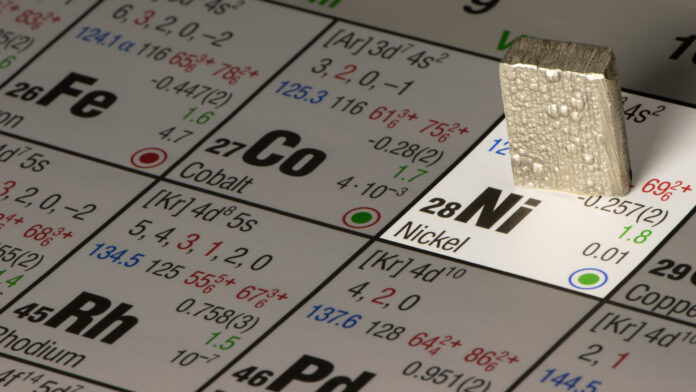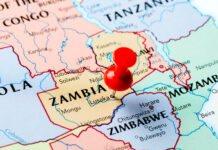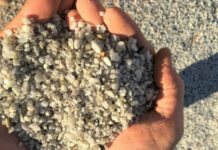
THE US government is due to unveil financing for the Kabanga Nickel, a project in Tanzania in which BHP has a 17% stake.
The commitment is part of the Minerals Security Partnership, a coalition of 14 nations and the European Commission aimed at supporting critical minerals projects, according to a report on Monday by the Financial Times.
The partnership is aimed at breaking the chokehold China has over the production of minerals such as nickel, lithium and manganese.
Citing a joint statement, to be published on the margins of the UN general assembly, the FT said the network would “strengthen co-operation and promote information exchange and co-financing” of 10 critical minerals. BlackRock, Goldman Sachs, Citigroup, Rio Tinto and Anglo American are scheduled to attend the meeting, the newspaper said.
Jose Fernandez, US under-secretary of state for economic growth, said a further 30 critical minerals mining projects are being evaluated by the MSP, as western governments race to secure the raw materials needed to make everything from electric vehicles to advanced weapons.
“What China is doing is following the playbook of the monopolist to drive out competition,” said Fernandez, who accused Beijing of engaging in “overproduction and predatory pricing” to retain its grip on global supply of critical minerals.
“We realise we can’t solve this problem with any one single country, we are stronger together,” he told the FT in an interview.
Kabanga is scoped to produce 65,000 tons a year of metal over 30 years consisting of 40,000 tons of nickel and 25,000 tons of by-products. Lifezone Holdings, a battery metals development company, is the controlling shareholder.
In terms of the arrangement between BHP and Kabanga Nickel, BHP has the option of increasing its stake to 60.7% on completion of a definitive feasibility study.
Lifezone confirmed in an announcement today it had received a ‘Letter of Interest’ from the US International Development Finance Corporation (DFC) that expressed DFC’s interest in considering the Project for loans as part of the Project’s financing package.
“The initiation of the project financing process with Societe Generale is a crucial next step in securing the funding required for Kabanga, and is yet another indicator of the strategic importance of the Project to our global partners,” said Chris Showalter, CEO of Lifezone Metals, a subsidiary of Lifezone Holdings.
“With DFC’s interest in supporting Kabanga, the US government clearly recognises the critical role that sustainable mineral development in Africa plays in the global energy transition,” Showalter said.
Shares in Lifezone Metals have been under pressure, losing 29% year to date in line with depressed nickel prices amid a surfeit of new low grade production from Indonesia. Following a monster run up in nickel prices to as much as $80,000/t in 2022, the metal is now struggling to rally through $16,000/t.
Western banks are also expected to show support for the development of nuclear power, the FT said earlier on Monday.
Banks including Bank of America, Barclays, BNP Paribas, Citi, Morgan Stanley and Goldman Sachs will support goals set out at the COP28 climate negotiations last year to triple the world’s nuclear energy capacity by 2050, the paper said.
Banks could support new plants by increasing direct lending and project finance to nuclear companies, arranging bond sales or introducing companies to private equity or credit funds, said the Financial Times.
BNP told the Financial Times there was “no scenario” in which the world could hit carbon neutrality by 2050 without nuclear power, citing the UN’s Intergovernmental Panel on Climate Change. Barclays said it was taking part because nuclear could be a solution to the intermittency of wind and solar energy.











